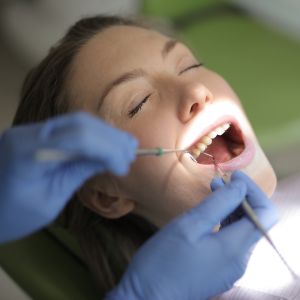Sweet Tooth Causing Cavities?

It’s in most of our favorite sweet treats—sugar! For some of us, cutting sugar altogether for the sake of our overall and oral health is too big of an order.
However, there are steps you can take to limit the amount of sugar you consume as well as improved oral health habits to follow, including:
If you can’t go sugar-free, opt for a dessert with low-sugar. A slice of low-sugar sponge cake isn’t as harmful to your oral health as a fudge brownie.
Use the right kind of toothbrush. People who eat a lot of sugar tend to have more plaque buildup, requiring better cleaning capabilities. Choose a diamond-shaped head with triple-action bristles.
Use a mouthwash daily. Better yet, keep a travel size mouthwash easily accessible and use it between sugary meals. This will help remove sugar and prevent the growth of bacteria. If you don’t keep mouthwash on you, rinse with plain water.
Alcohol and Your Teeth

Did you know that just one alcoholic drink per day can change the bacteria in your mouth for the worse?
Here’s how some of the most popular alcoholic drinks affect your oral health.
Wine: Wine drinkers tend to produce elevated levels of bacteria responsible for gum disease. Dark wines, especially red, can also stain the teeth when consumed regularly.
Spirits: Spirits with a high alcohol content tend to dry out your mouth, lessening saliva production. Consider sipping from a glass of water if you’re having a mixed drink to help maintain hydration.
Beer: Beer drinkers may experience an increase in oral bacteria that is linked to dental decay. As with any meal or drink, it’s important to brush or rinse your mouth when you’re finished.
The best drink for your teeth? Water, of course!






